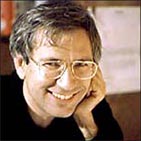Turkey's Nobel laureate Orhan Pamuk is controversial at home
Ankara -  When Turkish novelist and Nobel laureate Orhan Pamuk opens the Frankfurt Book Fair this week, he will do so not just as Turkey's most famous novelist, but also as one of its most controversial.
When Turkish novelist and Nobel laureate Orhan Pamuk opens the Frankfurt Book Fair this week, he will do so not just as Turkey's most famous novelist, but also as one of its most controversial.
Pamuk has never been far from debate inside Turkey, where he has critics in both the religious conservative camp and the secular establishment.
But what really riled Turkish nationalists were his comments in 2005 concerning the massacres of Armenians in Turkey during the First World War and Turkey's continuing fight against Kurdish separatists.
"Thirty-thousand Kurds and a million Armenians have been killed and almost nobody dares to mention that, except for me," Pamuk was quoted as saying in a Swiss magazine in 2005.
After his commentsm he was immediately denounced by nationalists in Turkey and charges were brought against him that he had "insulted Turkishness". The charges were later dropped for technical reasons but the incident polarized Turkey.
When he became the first Turkish author to win the Nobel Prize for Literature in 2006, many praised his work. Others claimed that he only won it because of his "anti-Turkish" political statements. Some were torn.
"We are angry at Pamuk because our Turkish soul weighs heavy in us, but for the same reason we are also proud he won the highest literary award," wrote Ertugrul Ozkok, the editor of Turkey's top selling newspaper, Hurriyet.
In what was a clear snub, the president of Turkey at the time, Ahmet Necdet Sezer, failed to publicly congratulate Pamuk.
Pamuk may no longer live in Istanbul, where he claims to have received death threats from nationalists, but his opening of the Frankfurt Book Fair this week is a clear acknowledgement that he is still Turkey's leading author.
Born in Istanbul in June 1952, he has published eight novels and a memoir which explore the way Turkey is torn between East and West and how it is torn between conservative religious folk and modern western-looking secularists.
The writer sees the splits clearly, but also looks into how the two actually make Turkey what it is. His main argument is that upholding one's own history and traditions is not incompatible with a modern secular state that seeks to join the European Union.
Educated at the prestigious American Robert College high school in Istanbul, Pamuk went on to study architecture at Istanbul Technical University, but dropped out after three years. He later went on to complete a course in journalism at the University of Istanbul.
While never actually going into journalism, Pamuk wrote his first book, Darkness and Light, in 1974. It was not published until 1982 under the title, Cevdet Bey and His Sons.
Since then he has written a number of prize-winning novels including The White Castle, The Black Book, My Name is Red, and Snow. His latest novel, recently released in Turkey, Masumiyet Muzesi (The Museum of Innocence), is currently topping the book charts. (dpa)